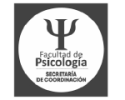
Immersive virtual reality (VR) enhances ecological validity and facilitates intuitive and ergonomic hand interactions for performing neuropsychological assessments. However, its comparability to traditional computerized methods remains unclear. This study investigates the convergent validity, user experience, and usability of VR-based versus PC-based assessments of short-term and working memory, and psychomotor skills, while also examining how demographic and IT-related skills influence performance in both modalities.
Sixty-six participants performed the Digit Span Task (DST), Corsi Block Task (CBT), and Deary-Liewald Reaction Time Task (DLRTT) in both VR- and PC-based formats. Participants’ experience in using computers and smartphones, and playing videogames, was considered. User experience and system usability of the formats were also evaluated.
While performance on DST was similar across modalities, PC assessments enabled better performance on CBT and faster reaction times in DLRTT. Moderate-to-strong correlations between VR and PC versions supported convergent validity. Regression analyses revealed that performance on PC versions was influenced by age, computing, and gaming experience, whereas performance on VR versions was largely independent of these factors, except for gaming experience predicting performance on CBT backward recall. Moreover, VR assessments received higher ratings for user experience and usability than PC-based assessments.
Immersive VR assessments provide an engaging alternative to traditional computerized methods, with minimal reliance on prior IT experience and demographic factors. This resilience to individual differences suggests that VR may offer a more equitable and accessible platform for cognitive assessment. Future research should explore the long-term reliability of VR-based assessments.
Direct mention to Nesplora Attention Adults Aquarium within the text:
Referenced research:
Kourtesis, P., Lizarraga, A., & MacPherson, S. E. (2025). Immersive virtual reality assessments of working memory and psychomotor skills: A comparison between immersive and non-immersive assessments. arXiv. https://doi.org/10.48550/arXiv.2503.06333












Este proyecto ha recibido financiación de la Unión Europea del programa de investigación e innovación
Horizon 2020 bajo el acuerdo Nº 733901
© 2025 Nesplora S.L.